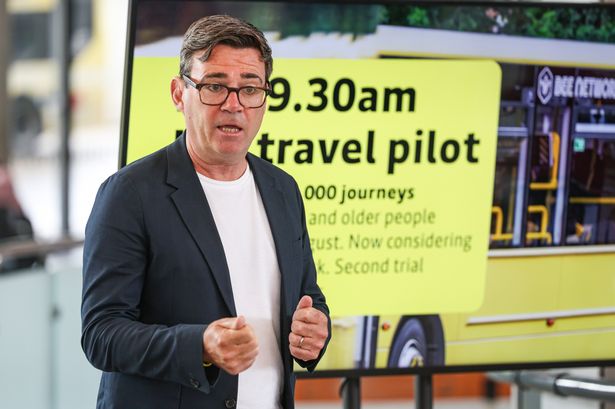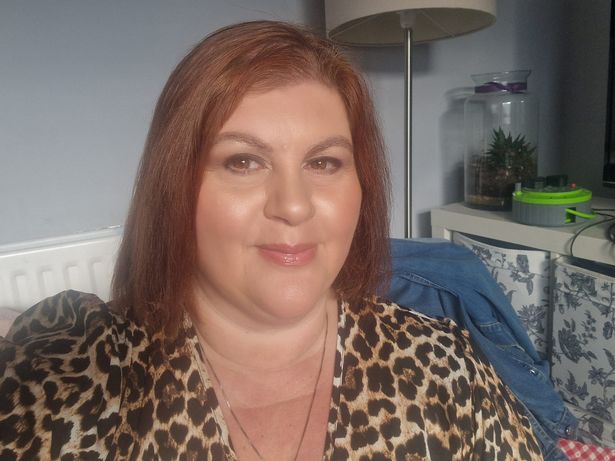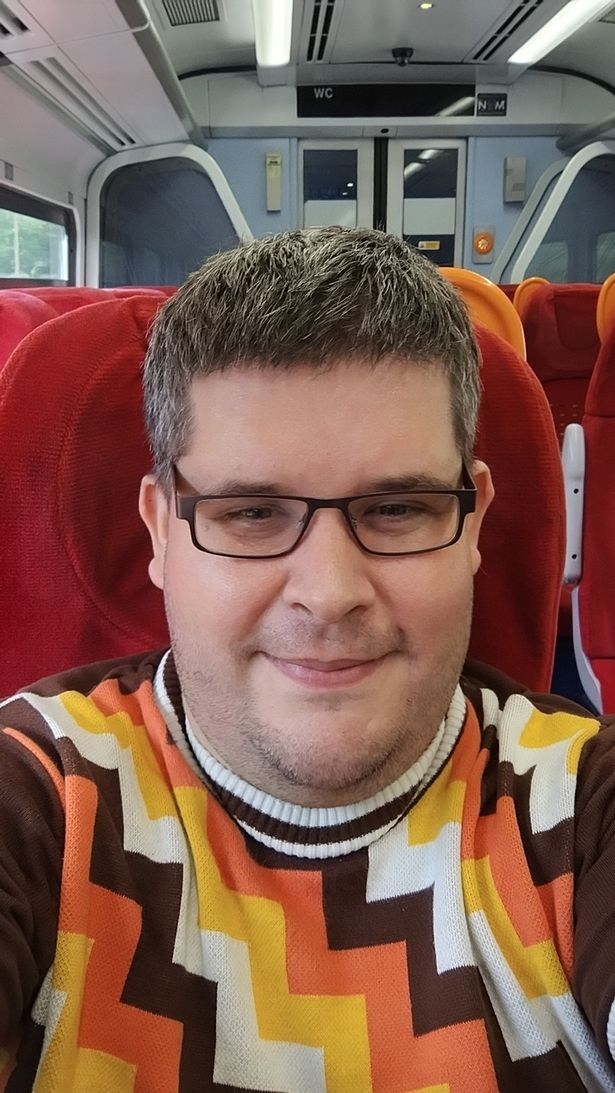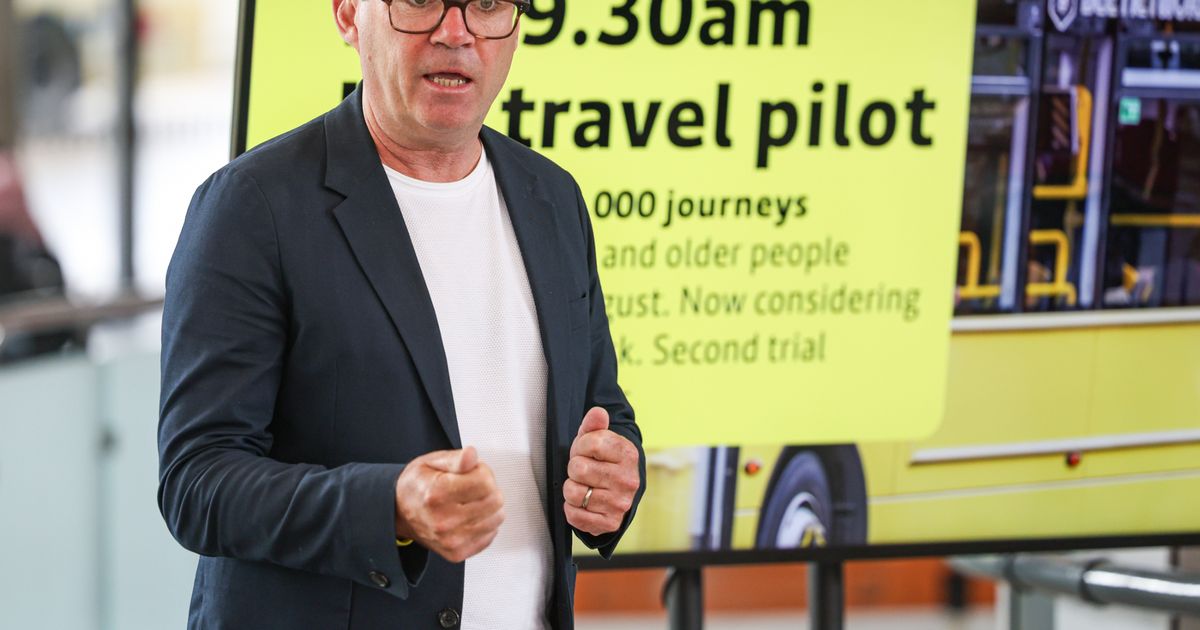Across the UK, travel on concessionary bus passes is typically limited to after 9.30am on weekdays The trial will run throughout November(Image: Kenny Brown | Manchester Evening News)
The trial will run throughout November(Image: Kenny Brown | Manchester Evening News)
A ‘lifeline’ bus scheme that is returning in November will give disabled and elderly people more independence, social connection and financial help, according to campaigners.
Concessionary bus pass holders will be able to travel in November for free before 9.30am in the second part of a trial scheme that will assess whether the change should be fixed.
Being able to use the pass around the clock has a ‘huge impact’ on the lives of elderly and disabled people and should be made permanent, users say.
Making bus travel free before 9.30am has meant users have been able to access work, social and educational opportunities, as well as things like medical appointments.
Lorenza Rizzo from Urmston has lived with multiple sclerosis for around ten years. As a carer for two children with SEN needs, she relies heavily on public transport day-to-day and to get to hospital appointments and support groups.
Join the Manchester Evening News WhatsApp group HERE
Being able to use her bus pass in the morning means she can access medical appointments without paying for taxis or relying on family members to pick her up.
She said: “I’ve got complex health needs – I’m actually under four hospitals and a lot of the time my appointments are really early, like half eight on a Saturday morning or even on Sundays.
 Lorenza Rizzo(Image: Lorenza Rizzo)
Lorenza Rizzo(Image: Lorenza Rizzo)
“I come out of the appointments quite sick so I don’t want to drive. I do have a car but it is much better for me to be on a bus because I do feel quite queasy after some of them.
“There’s been times when I’ve had to drive or get someone else to drive me just because my bus pass doesn’t start until half nine. It’s impossible sometimes.
“I have a scan every year that lasts an hour, and I come out green, it’s absolutely awful, like I’ve been microwaved. There’s no way I could drive myself after that.
“I once vomited on a nurse’s feet when I came out because I was so poorly. How could I drive myself home then? Impossible.
“I had to sit in a café for two hours afterwards, shaking like a leaf, just trying to pull myself together while I waited for my parents to pick me up. On a bus, that would have been so different.”
Lorenza also says that she feels taking public transport is safer for her and that she used the pass more during the trial in August when restrictions were lifted.
She said: “When the trial was on, I totally used it more. It just made everything easier – I could plan my routes, I could plan for how I’d feel after appointments. It made such a difference.
“If I didn’t have my parents to help sometimes, I don’t know what I’d do. When I lost my sight for three months, I was totally reliant on them.”
“I was already having a really bad time. My mental health went down the toilet. I had no independence without public transport – I was trapped.
“I’m a grown woman; I want to be able to go out, do my own shopping, meet my friends. Without the bus, you’re stuck, and taxis are extortionate.
“Isolation is the worst. It’s the absolute worst. You have to push yourself – I go to an art class at Trafford Carers. I’m not good, but it’s social, and it keeps me going. Without a bus, I couldn’t do that.
“The bus pass also makes a massive difference financially. If you’ve got complicated health like I have, being able to use the buses is huge.
“It’s a lifeline, for health, for mental health, for social reasons. We’re part of the community; we just want to be considered.
“The difference it makes to everyday life and my quality of life – it’s huge.”
Her comments come after TfGM ran a ‘hugely beneficial’ first trial that allowed elderly and disabled people to travel on Greater Manchester buses for free at any time of the day throughout August.
Following a campaign from food banks and charities across Greater Manchester, concessionary bus pass holders will now be able to travel before 9.30am in November in a second trial – when the network is at its busiest. Data from both trials will be used to inform a final decision on whether the change should be made permanently at the end of 2025.
Stuart Vallantine, a 46-year-old on the autism spectrum, says the concessionary pass has helped him ‘massively’ and making travel free around the clock would make him feel less anxious when travelling.
He said: “The pass has helped me massively – not just to get to work, but to travel independently and feel less anxious.
“Without it, journeys are longer, more complicated, and a lot more expensive.
“The 9:30 restriction doesn’t make sense – especially when a lot of autism-friendly store hours are early in the morning.
“I fully support the all-day travel trial, not just for me but for others like my dad. It means people can get to medical appointments or see family without paying for taxis.”
Stuart also said that the pass helps people out financially, often when they need it the most.
 Stuart Vallantine(Image: Stuart Vallantine)
Stuart Vallantine(Image: Stuart Vallantine)
He said: “When I was out of work, the pass was a financial lifeline. It let me get to job centre appointments and interviews when I could barely afford anything.
“It’s not just about transport. It’s about independence, social connection, and feeling included.
“The pass gives people with autism and disabilities a sense of control over their day.”
Making travel free before 9.30am also positively impacts other drivers and passengers, according to Stuart.
He said: “When they brought in the 9:30 rule, the buses were absolutely packed afterwards. It didn’t fix anything – it just shifted the problem.
“Making travel easier for disabled passengers would help everyone – passengers, drivers, and the community as a whole.”
In August, a campaign group, headed by Joe Troop, sent an open letter to Andy Burnham asking for the trial to be made permanent.
The group, All Hours All Voices, said: “Older and disabled people in Greater Manchester are currently locked out of fully contributing to community life – through work, volunteering, socialising, education, and even medical appointments.
“Removing restrictions on concessionary bus pass travel is a simple, practical step towards greater inclusion and belonging.
“This matters greatly because it will make all feel a valued part of society, while unlocking everyone’s freedom to choose and potential to contribute.”
Mayor of Greater Manchester, Andy Burnham, said: “The last trial in August was a brilliant success, which saw more than 100,000 journeys made by our older and disabled people before 9.30am.
“We are now carrying out this second trial, at a busier time of year, to see whether we can safely remove the restriction permanently and help our older and disabled people to get to work, go shopping and get to medical appointments such as at the GP.
“We want the Bee Network to be the best public transport system possible and this means it needs to support all of our residents and communities, including our ‘Twirlies’, to make the journeys they need to make and use the bus more.”
Transport for Greater Manchester says a feedback survey will be available from November 1 for people to give their views once the trial is live.
At the conclusion of the trial, the evidence gathered during it, including analysing passenger feedback, patronage and pass usage, will be assessed before a decision is made on whether the move can be made permanent.
Anyone wishing to share their experiences can also contact Joe Troop at joetroop@traffordnorth.foodbank.org.uk.
